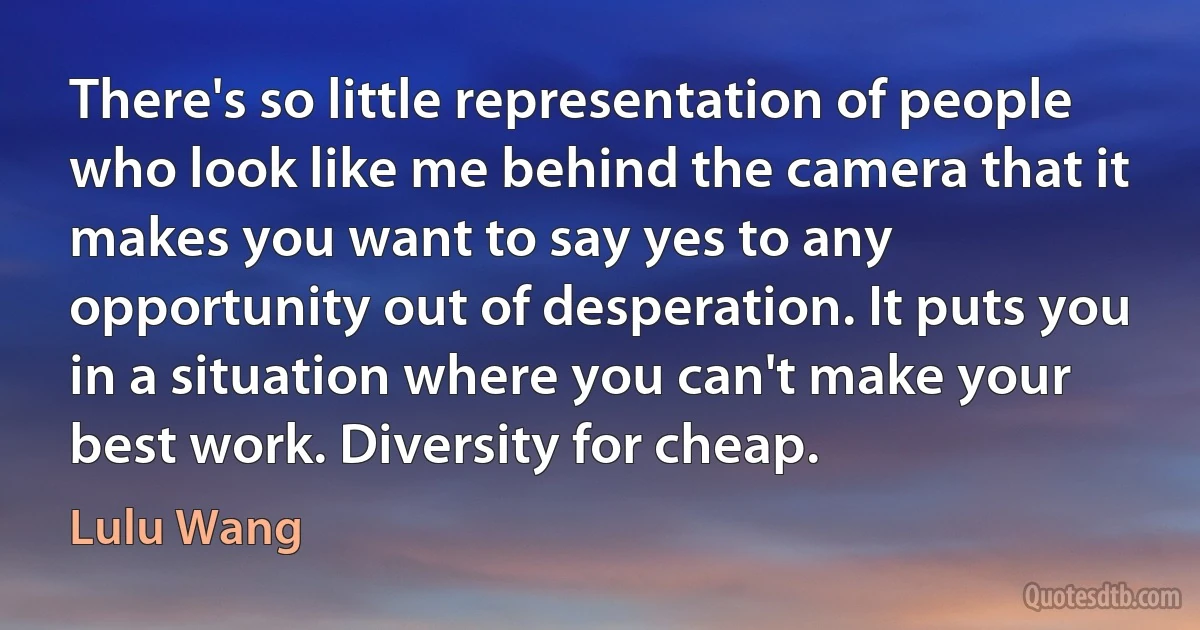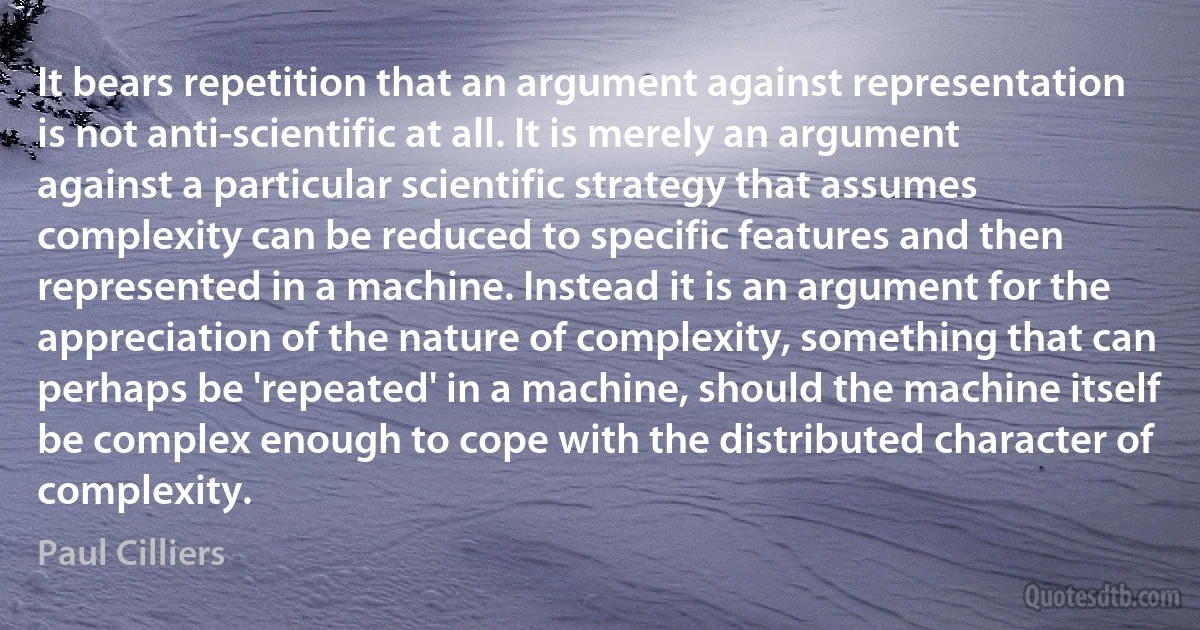Representation Quotes - page 11
He unveils Himself as the One He is by veiling Himself in a form which He Himself is not. He uses this form distinct from Himself, He uses its work and sign, in order to be objective in, with and under this form, and therefore to give Himself to us to be known. Revelation means the giving of signs. We can say quite simply that revelation means sacrament, i.e., the self-witness of God, the representation of His truth, and therefore of the truth in which He knows Himself, in the form of creaturely objectivity and therefore in a form which is adapted to our creaturely knowledge.

Karl Barth
The big thing that happened in the early to mid-90s was the last big discussion about political economy. Roughly speaking we went for endogenous growth, for flexible labour markets and the financial sector, and that was considered modern. The book that I wrote at that time was arguing that the German system – which had worker representation on boards, very strong vocational training, regional banks, very strong federal forms of democratic government – was actually better suited to globalisation because it preserved knowledge, trust, institutions, skills ... Now, I think the results of our experiment are in and we really got it wrong.

Maurice Glasman, Baron Glasman
What are the odds that a simple geometric folding of a $20 bill with elements of design that were conceived in 1928 by a committee of treasurers, a full 42 years before the World Trade Center even existed, could accidentally contain a representation of both terror attacks? Pretty good, apparently.

Maddox
In human history it seems that the idea of using a pictograph in the new function of representing sound may have occurred only three times: once in Mesopotamia, perhaps by the Sumerians, once in China, apparently by the Chinese themselves, and once in Central America, by the Mayas. (Conceivably it was invented only once, but there is no evidence that the Chinese or the Mayas acquired the idea from elsewhere.) The idea that was independently conceived by these three peoples was taken over, as were at times even the symbols themselves, though often in a highly modified form, by others who made adaptations to fit a host of totally different languages. One of the major adaptations, generally attributed to the Greeks, was the narrowing of sound representation from syllabic representation to phonemic representation (Gelb 1963; Trager 1974), after an earlier stage of mixed pictographic and syllabic writing (Chadwick 1967).

John DeFrancis
Poetry can be criticized only through poetry. A critique which itself is not a work of art, either in content as representation of the necessary impression in the process of creation, or through its beautiful form and in its liberal tone in the spirit of the old Roman satire, has no right of citizenship in the realm of art.

Friedrich Schlegel
The proposed Constitution, so far from implying an abolition of the State governments, makes them constituent parts of the national sovereignty, by allowing them a direct representation in the Senate, and leaves in their possession certain exclusive and very important portions of sovereign power. This fully corresponds, in every rational import of the terms, with the idea of a federal government.

Alexander Hamilton



